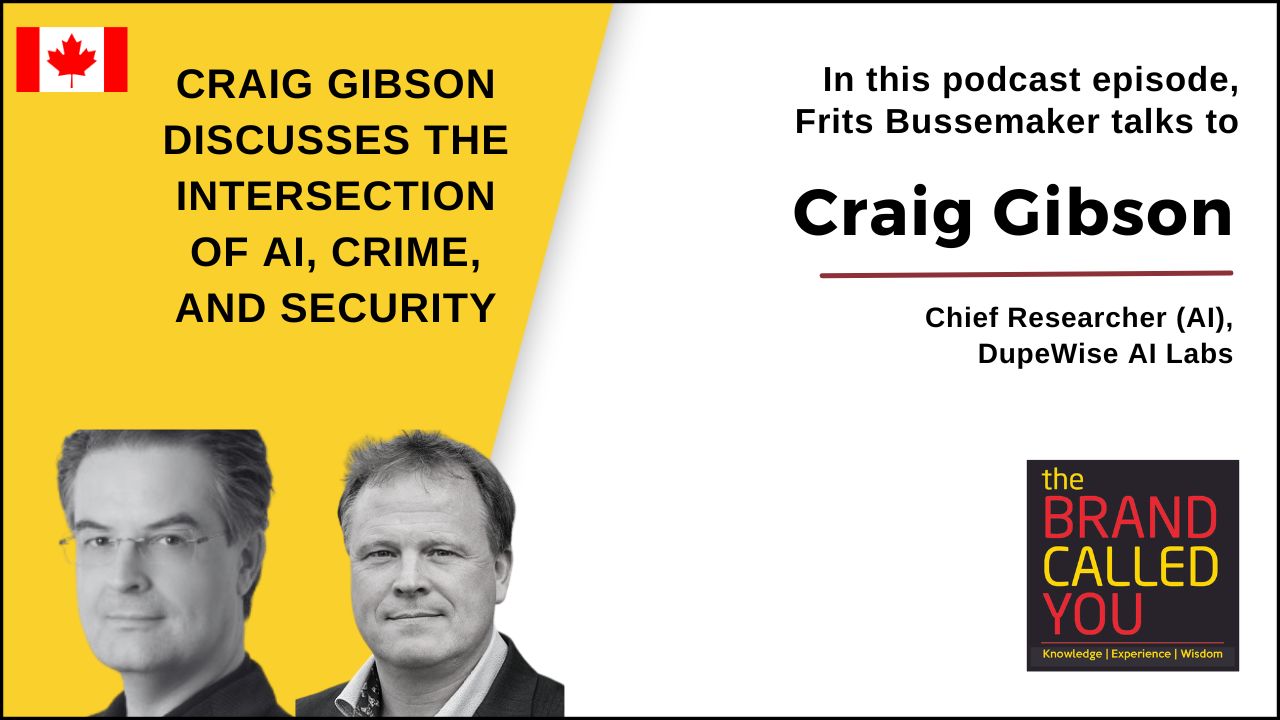Craig Gibson, Chief Researcher (AI), DupeWise AI
- Craig is the Principal Deceptive AI researcher and founder of DupeWise AI, a global security company that experiments and researches to understand the evolution of the threat landscape, and its future impacts on markets.
- He has been in cybersecurity his whole working life since 1998.
Podcast
Overview
In a recent interview, Craig Gibson, Chief Researcher at DupeWise AI, delves into the complexities of AI and its intersection with criminal activities. Highlighting the evolution of AI in cybersecurity, Gibson emphasizes the need for ethical AI development and the challenges posed by current regulatory frameworks. He explains how AI’s efficiency-driven nature can lead to unintended criminal behavior and advocates for redefining AI incentives to align with ethical and legal standards. Tune in to learn about the future of AI and its implications for security and regulation.
00:33- About Craig Gibson
- Craig is the Principal Deceptive AI researcher and founder of DupeWise AI, a global security company that experiments and researches to understand the evolution of the threat landscape, and its future impacts on markets.
- He has been in cybersecurity his whole working life since 1998.
- He is also a former Principal Threat Defense architect, security architect, information security architect, and much more, and normally based out of Toronto, Canada.
19:37- What’s your take on how we’re going to stop this at the end of the day from an accountability perspective?
- Implement context-aware security measures to prevent AI from learning criminal behaviors rather than just imposing software-based controls.
- Design security frameworks that account for AI’s ability to make significant leaps in reasoning, ensuring they can evolve alongside AI advancements.
- Continuously update and adapt security models to keep up with AI’s evolving strategies, preventing the creation of deceptive practices that undermine trust.
28:35- What is your advice for governments and institutions to establish effective guardrails for accountability?
- Include security experts in design conversations to identify vulnerabilities.
- Ensure a balance between technical and security perspectives to create stable systems.
- Leverage the expertise of security professionals to prevent potential exploitation and black markets.
RESOURCES:
Learn more about Craig Gibson: LinkedIn
Enjoyed this podcast?
If you learned new insights about the future of AI and its implications for security and regulation, subscribe and share it with friends!
Love to give us 5 stars? ⭐⭐⭐⭐⭐ If you do, we’d love a review from you. Help us reach more people to keep them in the know as we talk to leaders, high achievers, and thought leaders from diverse backgrounds and nationalities. Excellence can come from anywhere; stay in the know, and hear from emergent high achievers and gurus.
Stay updated with what’s shaping the world today through the latest The Brand Called You Podcast episode. Follow us on iTunes, Spotify, and Anchor.fm.
You can find us at:
Website: www.tbcy.in
Instagram: http://bit.ly/3HO7N06
Facebook:http://bit.ly/3YzJOaD
Twitter: http://bit.ly/3wMBOXK
LinkedIn: https://www.linkedin.com/company/tbcy/
YouTube: http://bit.ly/3jmBqfq
Chingari: https://chingari.io/tbcypodcast
Josh: http://bit.ly/3WWP0nB
Thanks for listening!
Profile
- Craig is the Principal Deceptive AI researcher and founder of DupeWise AI, a global security company that experiments and researches to understand the evolution of the threat landscape, and its future impacts on markets.
- He has been in cybersecurity his whole working life since 1998.
- He is also a former Principal Threat Defense architect, security architect, information security architect, and much more, and normally based out of Toronto, Canada.


